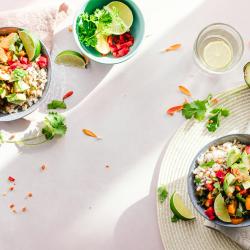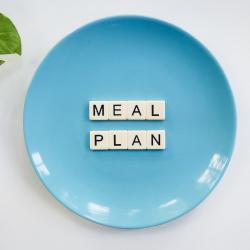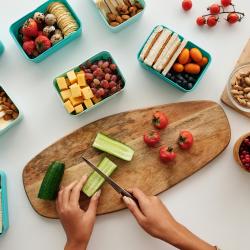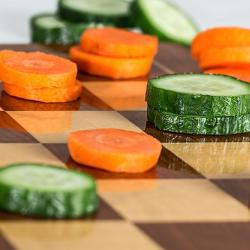How to Make Meal Planning a Sustainable Habit
Life often leave little time for self-care, the concept of meal planning can be a transformative tool for achieving a balanced lifestyle. Creating a sustainable meal planning habit not only saves time and reduces stress but also promotes healthier eating practices and minimizes food waste. Here's how you can cultivate this beneficial habit in a way that sustains itself over the long haul.
Understand Your 'Why'
Before diving into meal planning, it is crucial to understand why you want to incorporate it into your routine. Whether your goals are to eat healthier, save money, reduce waste, or streamline your weeknight dinners, having a clear purpose will keep you motivated. Write down your reasons and refer back to them whenever you find yourself straying from your routine.
Start Small
One of the most common mistakes is trying to do too much too soon. Start by planning just two or three dinners a week, then gradually increase as you become more comfortable with the process. As you master planning dinner, you can move on to other meals, such as breakfast and lunch.
Set a Schedule
Consistency is key to building any habit, meal planning included. Set aside a specific time each week to plan your meals. This could be an hour on Sunday morning or Saturday afternoon - whatever fits best in your schedule. Consistently dedicating time to this task will help solidify it into your routine.
Build a Repertoire of Go-To Recipes
Having a collection of simple, healthy recipes at your disposal makes meal planning quicker and less daunting. Choose meals that you and your family enjoy and that can be adapted with different ingredients. Consider seasonal produce to keep meals fresh and varied throughout the year.
Create a Flexible Framework
While it’s important to have a plan, it's equally important to remain flexible. Life can be unpredictable, so allow for adjustments. Instead of assigning meals to specific days, consider planning for a week’s worth of meals and decide each day which one fits best. This flexibility will make the habit more sustainable over time.
Optimize Your Shopping
Streamline your grocery shopping by organizing a list based on your planned meals. This reduces impulse purchases, saving both time and money. Consider online shopping or grocery delivery services, which allow you to stick to your list and avoid the aisles’ tempting distractions.
Batch Cooking and Prepping
Invest time in batch cooking or prepping ingredients at the beginning of the week. Chopping vegetables, marinating proteins, or even cooking entire meals and storing them can significantly reduce daily cooking time. This upfront investment pays off, especially on busy weekdays.
Monitor and Adjust
Like any habit, meal planning requires continuous evaluation and adjustment. Reflect on what worked and what didn’t in your meal planning process and be open to making changes. Whether it’s trying new recipes, changing the planning day, or adjusting portion sizes, adaptability is crucial to maintaining this habit.
Incorporate Family Involvement
Engage family members in the meal planning process to make it more sustainable. Assign tasks, request input on meal selections, or encourage them to try cooking new recipes. This not only distributes the responsibility but also increases the likelihood that everyone will enjoy the meals.
Celebrate Successes
Finally, acknowledge and celebrate your successes, no matter how small. Whether you’ve reduced food waste, stuck to a budget, or simply enjoyed a few dinners without stress, these victories help reinforce the habit.
Conclusion
Meal planning is a valuable tool for managing daily life’s complexities, supporting nutritional goals, and promoting overall well-being. By starting small, maintaining flexibility, engaging family, and consistently re-evaluating your approach, you can make meal planning a sustainable habit that enhances your life. As with any undertaking, patience and persistence will ultimately lead to a routine that works for you and your family, making mealtime an occasion to look forward to rather than a task to dread.






















